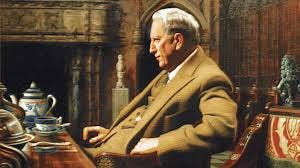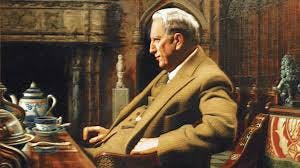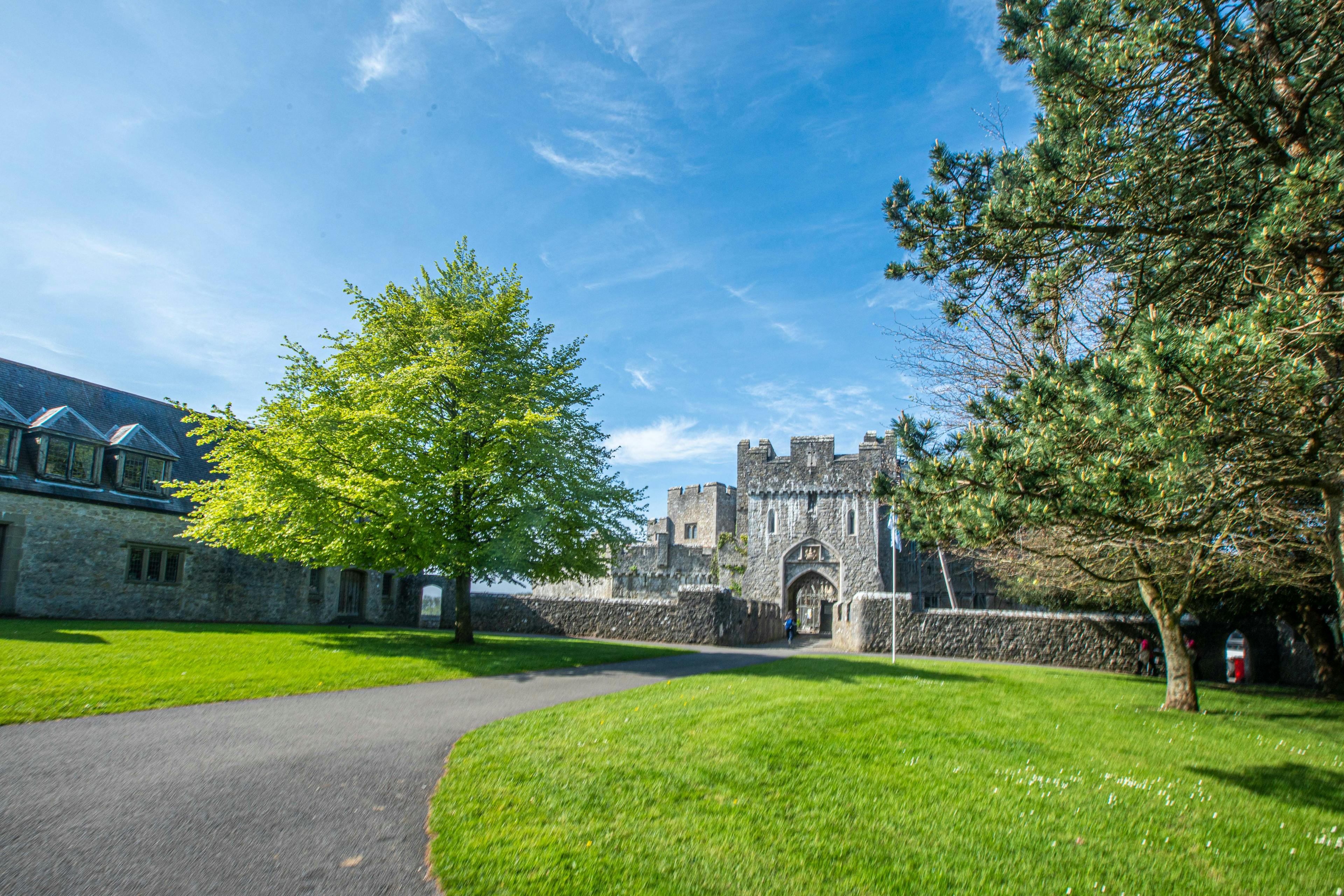
A Century since Hearst came to St Donat’s
Perched high above the Bristol Channel on Wales’s southern coast, St Donat’s Castle has weathered eight centuries of change. Its grey walls have seen medieval skirmishes, Tudor feasts, Civil War power politics and Victorian neglect. But one of its most dramatic transformations came exactly a hundred years ago, in 1925, when American newspaper magnate William Randolph Hearst added this ancient fortress to his growing collection of extraordinary residences.
By the time Hearst first set eyes on St Donat’s, it had slipped into genteel decline. Once the proud seat of the Stradling family for over 400 years, the castle’s fortunes had faded in the 20th century. Hearst, captivated by its clifftop grandeur, purchased the property and the surrounding 111 acres for around £130,000.
What followed was an ambitious and, at times, controversial restoration. Hearst and his architect, Sir Charles Allom, set about reviving the castle with lavish interiors, importing architectural treasures from across Britain. The most famous was the medieval roof from Bradenstoke Priory in Wiltshire, now crowning the magnificent Bradenstoke Hall. Other elements came from churches and manor houses, creating an eclectic but undeniably theatrical setting.
Not everyone approved. Preservationists of the day objected to dismantling historic buildings to enhance another. Yet without Hearst’s intervention, St Donat’s might well have slid further into decay.
Although the press baron spent less than four months here in total, his Welsh retreat hosted an extraordinary cast of guests, Winston Churchill, Charlie Chaplin, Douglas Fairbanks, and even a young John F. Kennedy. For a brief, glittering moment, a medieval Welsh fortress became a transatlantic stage.

After Hearst’s final visit in 1936, the castle entered quieter times until 1960, when it began a new life as the home of Atlantic College, the founding school of the United World Colleges movement. Today, 350 students from more than 70 countries study within its walls, blending centuries-old heritage with a modern mission of global education.
In 2025, the centenary of Hearst’s purchase was marked with a special exhibition for staff and invited guests featuring historic artifacts and previously unseen materials, inviting visitors to reflect on a century of change at St Donat’s and on the many hands and visions that have shaped this remarkable place.










